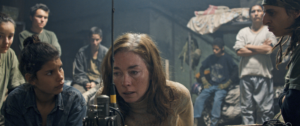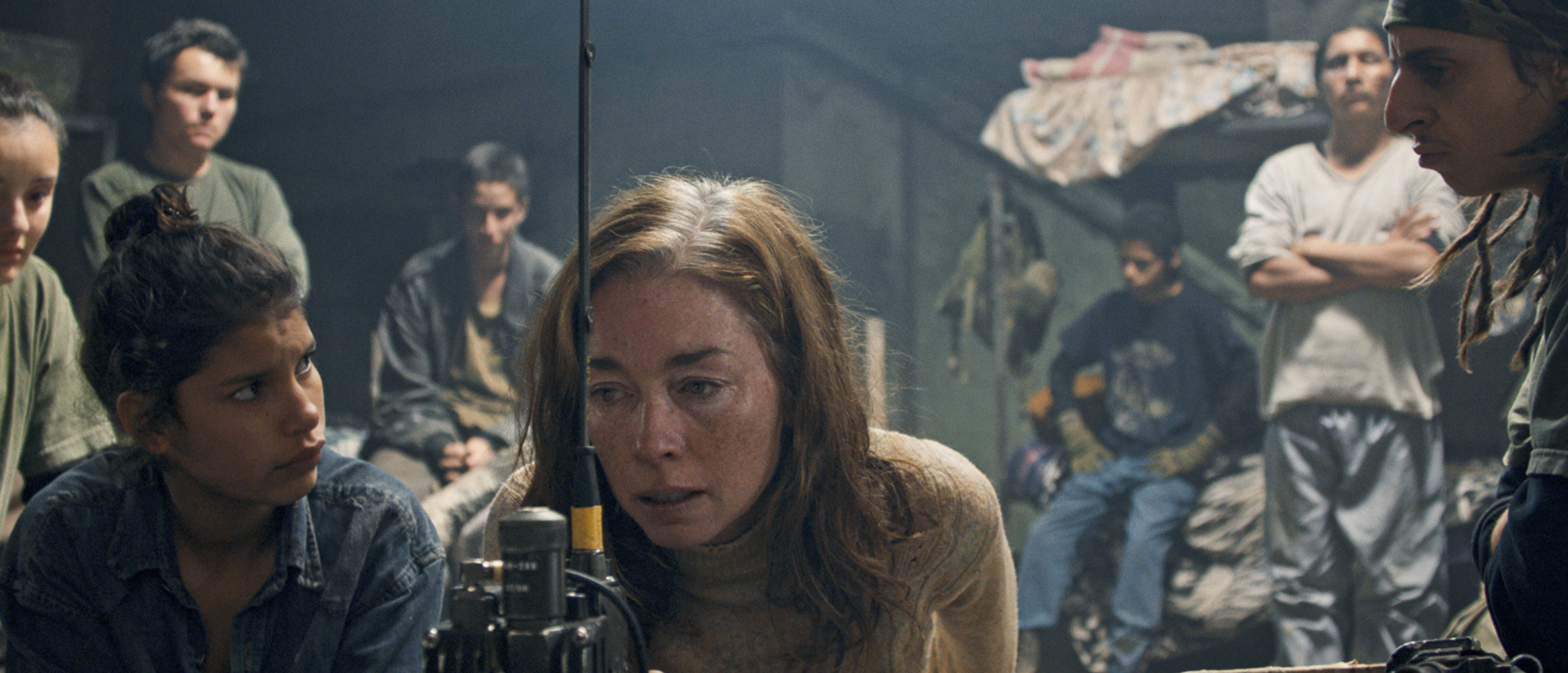Movie Info
Movie Info
- Director
- Alejandro Landes
- Run Time
- 1 hour and 42 minutes
- Rating
- R
VP Content Ratings
- Violence
- 5/10
- Language
- 2/10
- Sex & Nudity
- 4/10
- Star Rating
Relevant Quotes
Do not human beings have a hard service on earth,
and are not their days like the days of a laborer?
Like a slave who longs for the shadow,
and like laborers who look for their wages,
so I am allotted months of emptiness,
and nights of misery are apportioned to me.
When I lie down I say, ‘When shall I rise?’
But the night is long,
and I am full of tossing until dawn.

Argentinean director/co-writer Alejandro Landes plops us down in the middle of the story of a band of teenage guerillas known as “Monos” (monkey) with no provision of context. There are times when they act like their moniker, dancing wildly around a bonfire and painting their faces, their fierce expressions giving them an animal-like look. We first see the group going through calisthenics and a military drill, orders barked by a drillmaster who seems as fierce as he is small. The teenagers go by their nicknames– Wolf, Lady, Big Foot, Boom Boom, Smurf, Dog, and Rambo. They know their master only as The Messenger (Wilson Salazar,) though Napoleon might have been a better nom de guerre, he barely coming up to the navel of the tallest of the boys, Big Foot.
The youthful soldiers belong to a shadowy guerilla group known as “The Organization.” They are temporarily sequestered high up in Columbia’s misty mountains, and thus removed from the warfare raging in a valley below. For long periods of time they are on their own, connected to the Messenger by an undependable two-way radio. Their mission is to watch over the female hostage, known only as “Doctora” (Julianne Nicholson). With no adult supervision, the squad descends to the level of behavior of the boys in Lord of the Flies—that dark film is brought to mind by the scene in which the young guerrillas dance wildly around a bond fire one night, and most of all, by the appearance of a severed pig’s head. Soon one of the young soldiers is dead due to a dispute, leading to a change of leadership, and Doctora escapes, though only for a brief time. Later, when they are chastised and ordered to come down into the jungle-infested valley, the level of violence rises as they engage in a fire fight with government forces, the child soldiers proving to be as brutal as their elders.
Except for “Rambo” (Sofia Buenaventura) and Bigfoot (Moises Arias), and Doctora, the characters are very sketchy. Rambo, we gather, was given her name in jest, because she seems to be the only one of the band hanging on to a trace of human compassion. We learn that the hostage’s name is Sara Watson, an American, but not a medical doctor—one reviewer calls her an engineer, though I found no mention of this in the official press notes. Like foreigners throughout the world, she suddenly finds herself enveloped in the chaos of civil strife, her captors hoping to extract a large ransom to fuel their cause. Occasionally she is photographed and taped holding a current newspaper to prove that she is still alive. At times her maternal instincts are called on, but she always seeks her freedom, her two escape attempts resulting in suspenseful chases in which virtually all are reduced to animalistic existence, Sara included.
The film makes no attempt to justify the guerrilla’s existence by providing any facts as to why the Organization is in revolt against the government. This is not a political film, but, as the press notes put it, “a survivalist sage,” a story of how humanity can be squeezed out of those engaged in arm conflict when under great stress. Although our sympathy is with Sara, she too is driven to savage acts as she struggles to escape from her dismal condition.
Although, as in Lord of the Flies, the constraints of civilization are left behind as the discipline of Monos disintegrates, the film is not nihilistic, there being an intentional slight ray of hope (especially for Rambo) at the end of the film. The girl had found a brief respite when she is separated from the group and taken into a peaceful home by a kindly peasant family. Even though their kindness is cruelly rewarded, we are left at the end hoping that the teenage girl will be able to move beyond her trauma. She is very much like the Biblical Job, who was” allotted months of emptiness, and nights of misery.” She too might lament that “the night is long” and “full of tossing,” but there is a dawn, and, we hope, that with the sun will come healing.
This review will be in the November issue of VP along with a set of questions for reflection and/or discussion. If you have found reviews on this site helpful, please consider purchasing a subscription or individual issue in The Store.
Neon

